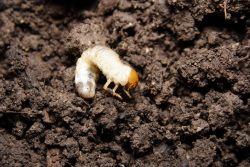How to Get Rid of Summer Lawn Pests
How to Get Rid of Summer Lawn Pests
Summer is a great time to enjoy the lawn and the outdoors with family and friends. However, this season is also a prime time for lawn pests, which can cause damage to your lawn, creating brown spots and making it look unsightly. These pests can also cause health issues, especially if you have pets or young children that enjoy playing on the lawn. From fleas to chinch bugs, to grubs, lawn pests can be a significant nuisance. In this article, we will discuss some effective ways to get rid of lawn pests during the summer season.
1. Mow the Lawn and Remove Debris
Mowing the lawn frequently is essential in getting rid of lawn pests, as they tend to infest long grass, weeds, and other debris. Ensure that your lawn is maintained at a reasonable height throughout the summer. Additionally, remove any debris such as tree branches, leaves, and other clutter. This will eliminate any hiding spots for lawn pests, making your lawn less attractive.
2. Water Your Lawn Appropriately
Watering your lawn appropriately is another effective way of deterring lawn pests. Ensure that there is enough water to reach the roots beneath the soil. However, avoid overwatering, which can create the perfect breeding ground for pests. Additionally, avoid over-irrigating the lawn and let the grass dry to help reduce the possibility of fungal growth.
3. Implement a Cultural Plan
A cultural control plan involves growing a healthy lawn that is resistant to pests. This can be done by fertilizing regularly, overseeding, and aerating the soil to allow sufficient water and nutrients to reach the roots of the grass. A healthy lawn will be less attractive to lawn pests, and it will be more robust and more resistant to damage.
4. Use Beneficial Insects
Beneficial insects can help get rid of lawn pests in a natural way. Many insects, such as ladybugs, lacewings, and parasitic wasps, feed on pest insect larvae, including aphids and other plant-sucking insects. These insects can also help reduce the population of chinch bugs, cut grass worms, and other grass pests. You can purchase beneficial insect larvae or colonies from specialty plant nurseries or online.
5. Use Organic Treatments
Organic treatments offer a natural way of getting rid of lawn pests without using harmful chemicals. These treatments work by creating an unfavorable environment for pests, discouraging them from living on your lawn. Examples of organic treatments include neem oil, insecticidal soap, and microbial insecticides. Organic treatments are environmentally friendly and safe for use around children and pets.
6. Apply Chemical Pesticides
If the infestation is too widespread and natural remedies and cultural control plans have proven ineffective, pesticides may be the only option. However, it’s always advisable to use these treatments as a last resort, as they can harm beneficial organisms inhabiting the soil and cause health problems to children and pets. Always read the labels carefully and follow the instructions provided.
7. Hire a Professional
If you are having difficulty eliminating lawn pests or unsure of the best control measures to use, consider hiring a professional pest control service. These experts have the knowledge, equipment, and expertise to handle any infestation safely and effectively. They can also provide advice on cultural control and maintenance practices to ensure that the problem does not recur in the future.
Final Thoughts
Eliminating lawn pests can be a challenging task, but it’s essential for maintaining a healthy and beautiful lawn. By adopting the above measures, you can get rid of pests and prevent future infestations during the summer season. Remember, it’s always best to use natural remedies and cultural control methods before resorting to chemical pesticides and to practice caution when using them. A healthy and pest-free lawn will provide you and your family with an enjoyable outdoor space all summer long. And if you’d like us to landscape your lawn in a way that prevents pests from taking root, contact us today!
Categorised in: Lawn Care Tips
